- Home
- slideshows
- miscellaneous
- We visited a retirement community and saw what life is really like for seniors trying to maintain a sense of purpose
We visited a retirement community and saw what life is really like for seniors trying to maintain a sense of purpose
Evelyn and Barry Adler have lived in San Francisco, California, for over 50 years.

They told Business Insider that they were living in a fairly large apartment a couple of years ago when the mundane activities of daily life began to wear on them.
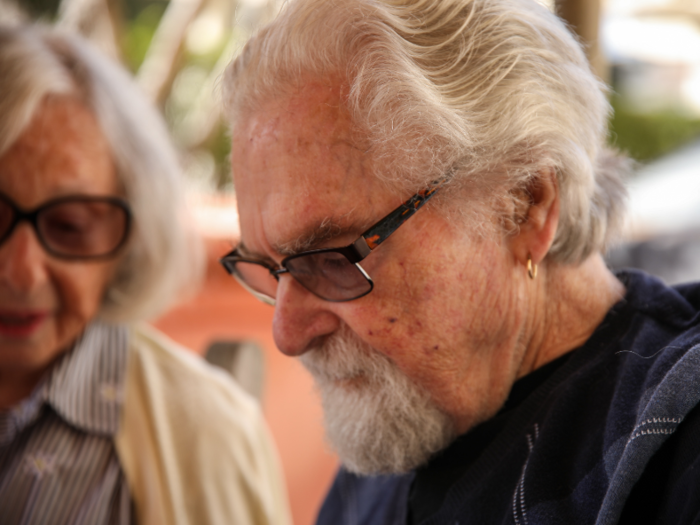
Both in their late 80s, they felt they had to stop driving — there was too much traffic, street work, and hassle involved, they said.
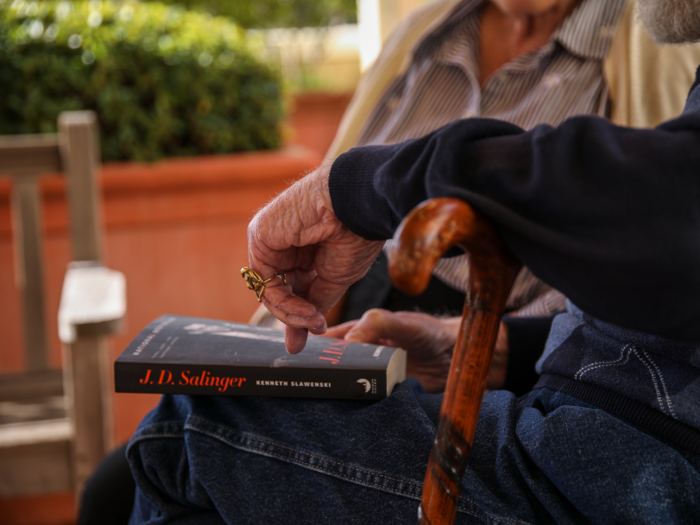
Other habitual housekeeping tasks also became a drag. "The shopping, the cooking, and the cleaning — I just got so tired of it," Evelyn Adler told Business Insider.
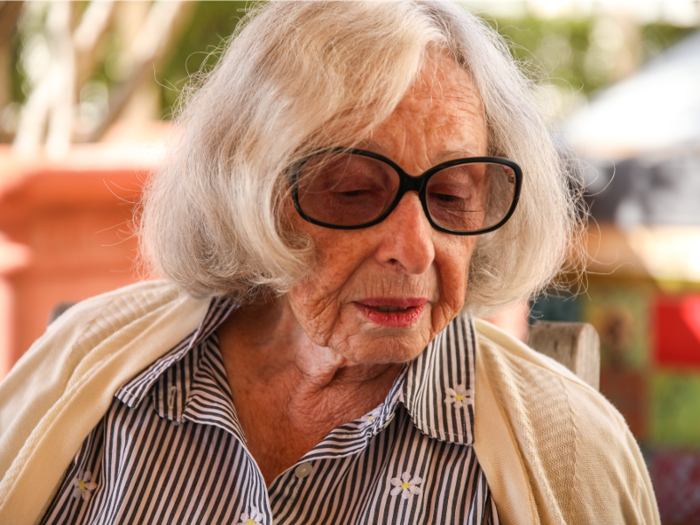
They said they became less able to manage on their own. "Suddenly we were more dependent on family, we lost some of our independence," Barry Adler said. "And that's not a happy situation."
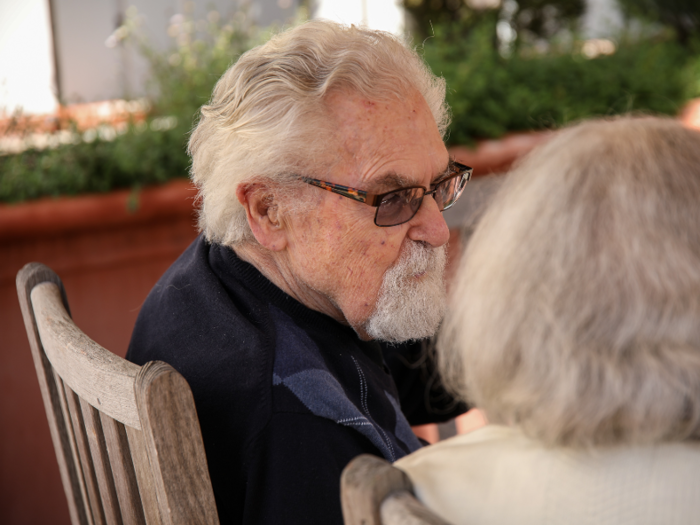
So they looked into in-home caregiving, a pricey alternative, before deciding to move into a retirement community 20 blocks down the street from their apartment.
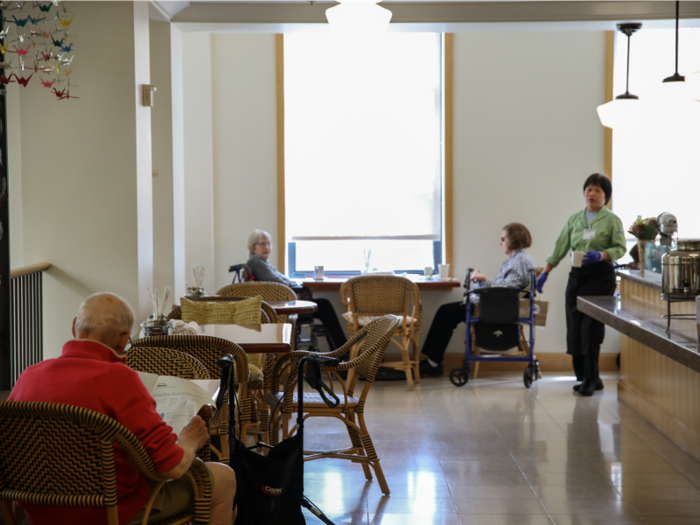
Source: Aging
The senior living center they chose was Rhoda Goldman Plaza, one of many retirement homes in the Bay Area.

Rhoda Goldman is what is known as an assisted living community.

We paid the home a visit to see what living in this type of retirement community is really all about.

In an assisted living community, residents live in their own private apartment units, but they have 24/7 access to staff for help with daily activities like showering, dressing, and planning doctors' visits.
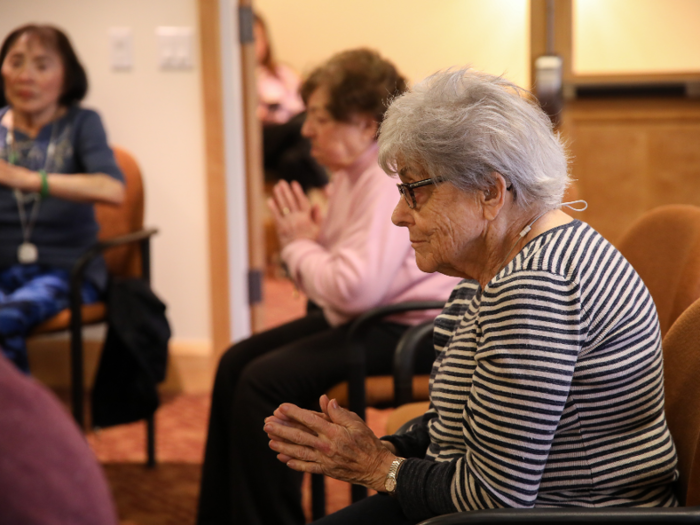
They also have three meals a day included in their monthly fees, and they don't have to worry about doing laundry or dealing with any kind of housekeeping.
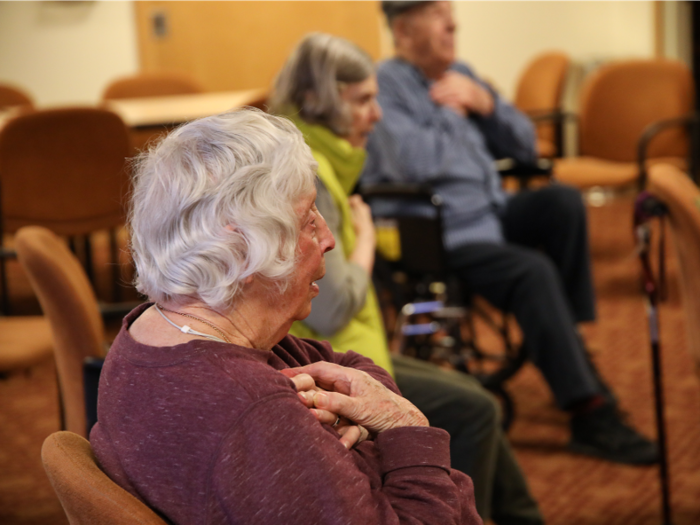
On top of that, the goal of retirement communities is to keep residents engaged, so there are daily itineraries chock-full of activities.
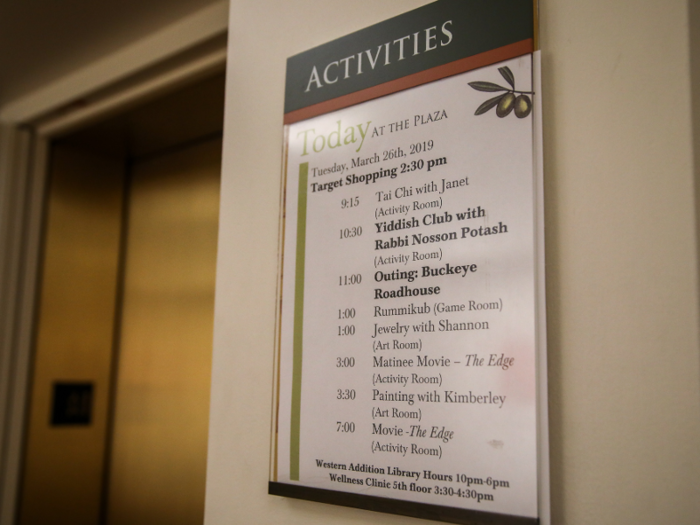
So residents like the Adlers have plenty of entertainment at their disposal.
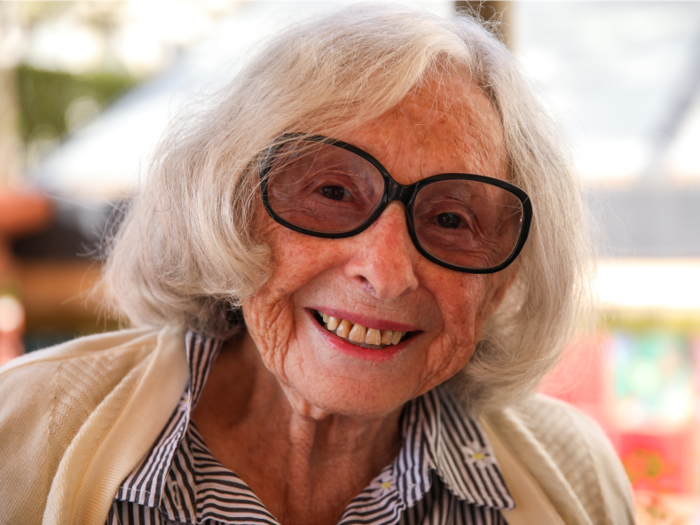
There's Tai Chi, a low-impact Chinese martial art form.
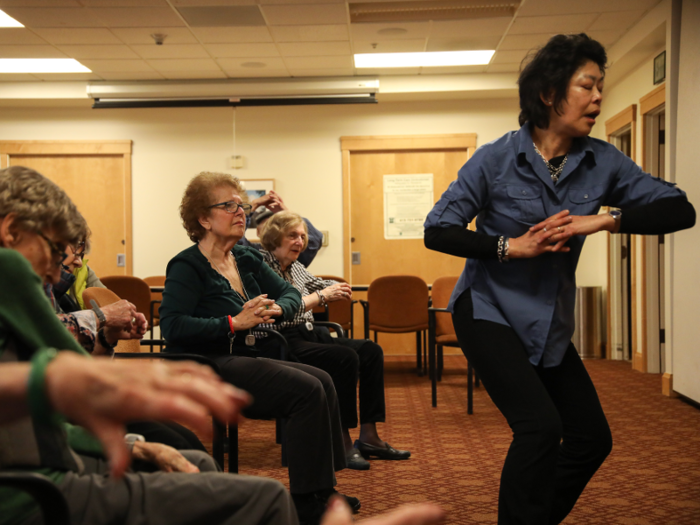
Participants were seated during the class, but attentive to their instructor, Janet.
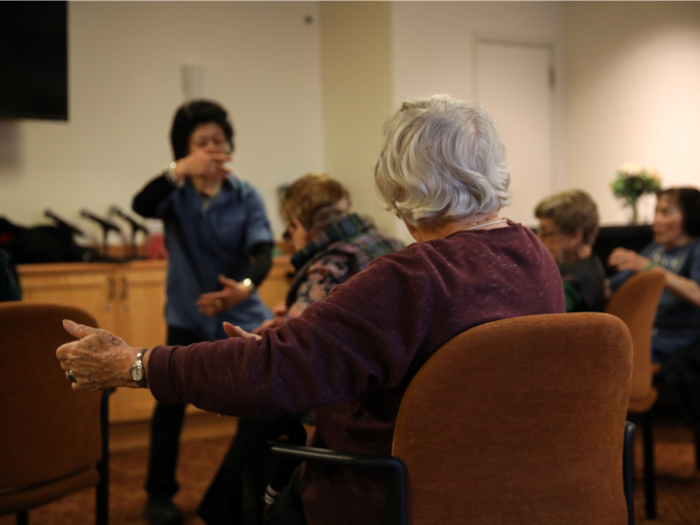
There are tons of other things for residents to check out throughout the day, like painting and jewelry-making sessions ...
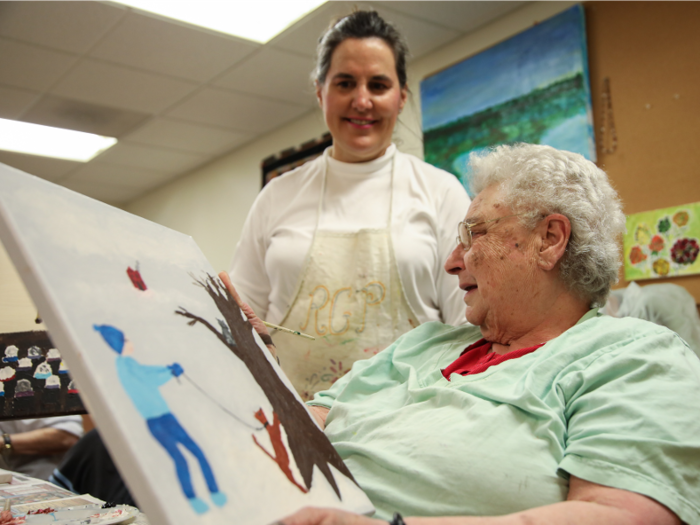
... Rummikub hours ...
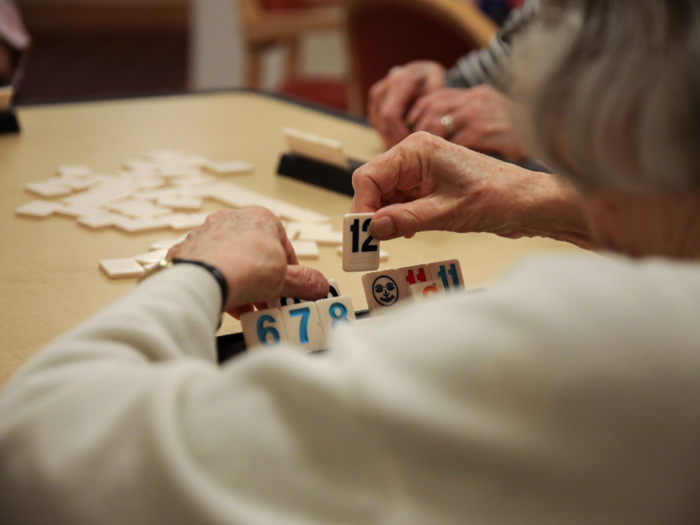
... an in-house hair salon offering beauty treatments for an extra cost ...
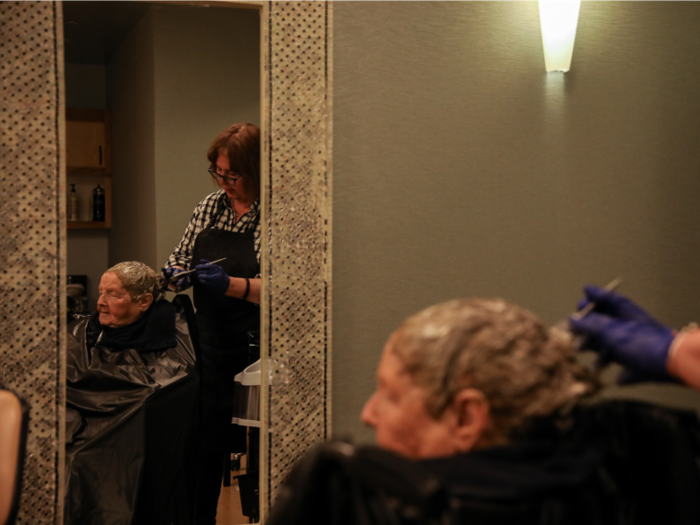
... multiple libraries filled with books and newspapers ...
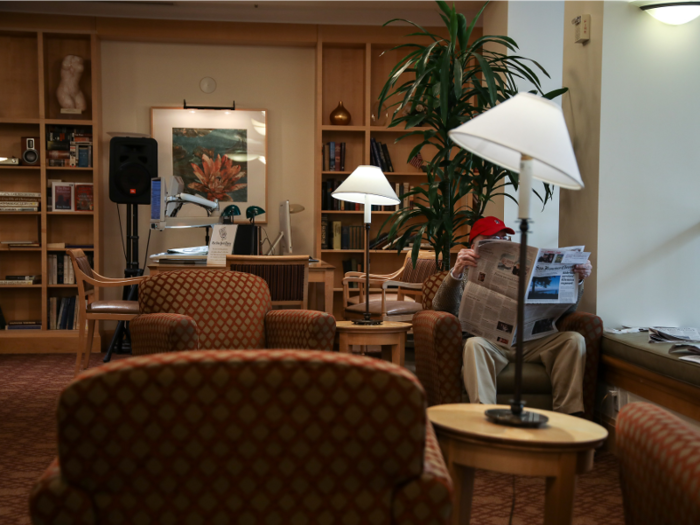
... and a state-of-the-art dining hall that is well-known for its food in the Bay Area.
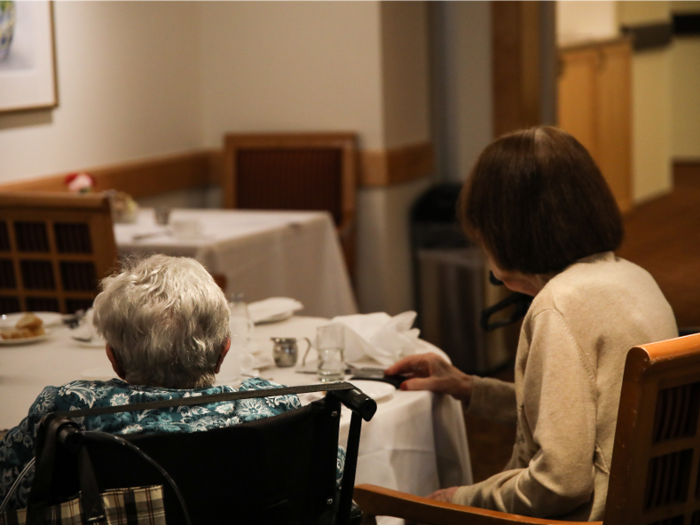
Source: SF Weekly
Maurice Edelstein, who's been a resident for two and a half years, was seated in the dining hall when we met him, and he had just finished his hot dog for lunch. He said it was tasty. After lunch he said he had an appointment with his therapist at 2 p.m. and then would be off to meet his physical therapist at 3 p.m.
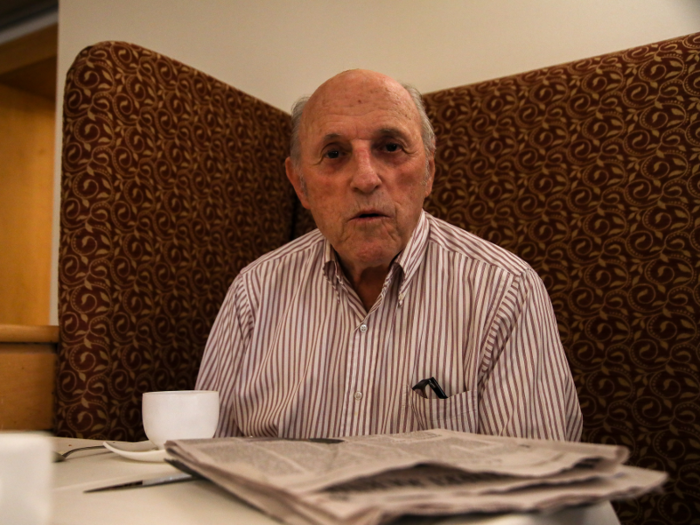
The itinerary posted for the day included a movie showing later, a daily activity featuring a film selected by a movie committee of residents. Edelstein said he's gone in the past but has left on some occasions.

"I don't like the choices," Edelstein said. "If I liked the choices, I wouldn't walk."

Edelstein isn't obligated to attend these regular communal events — none of the residents are.
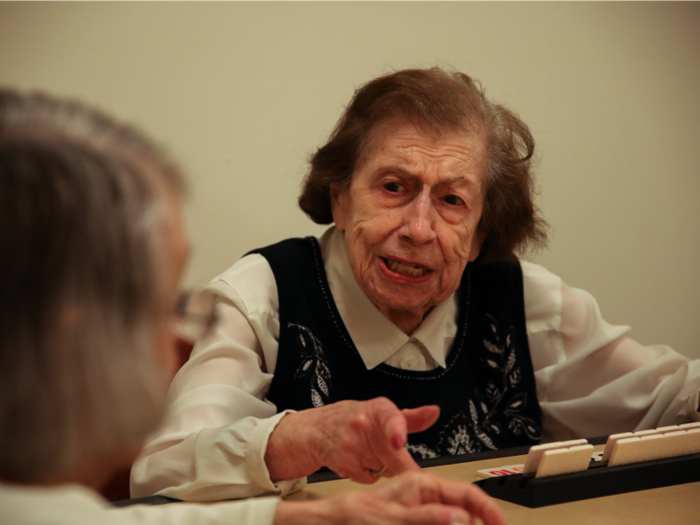
Instead of attending a Tai Chi class for daily exercise, for example ...
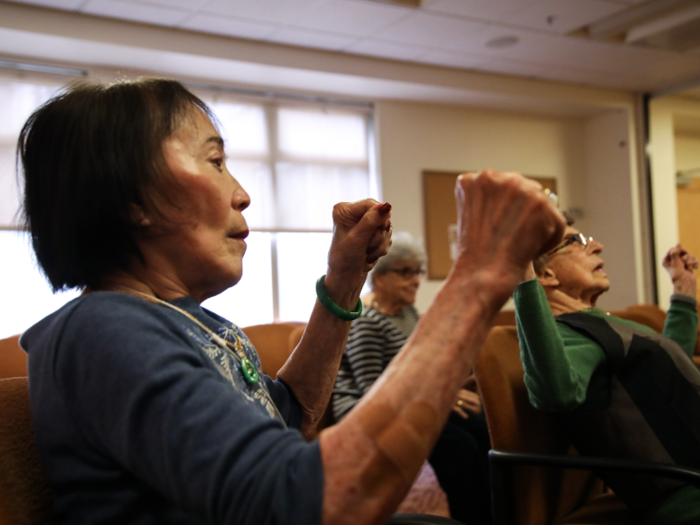
... residents could use an on-site fitness room, with their physician's permission.
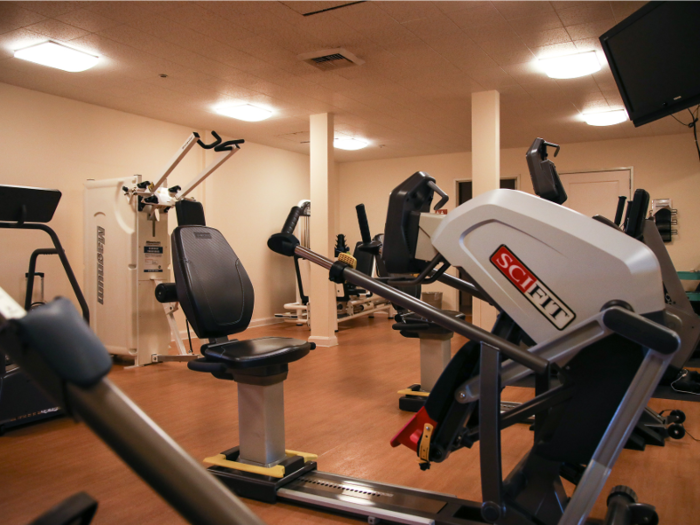
Len Sperry, 89, had just come from the fitness room when we met up with him in the café. His physical trainer had him doing aerobic exercises on the stationary bike, which he said he likes. He said he could also can press 170 pounds on the leg press machine.
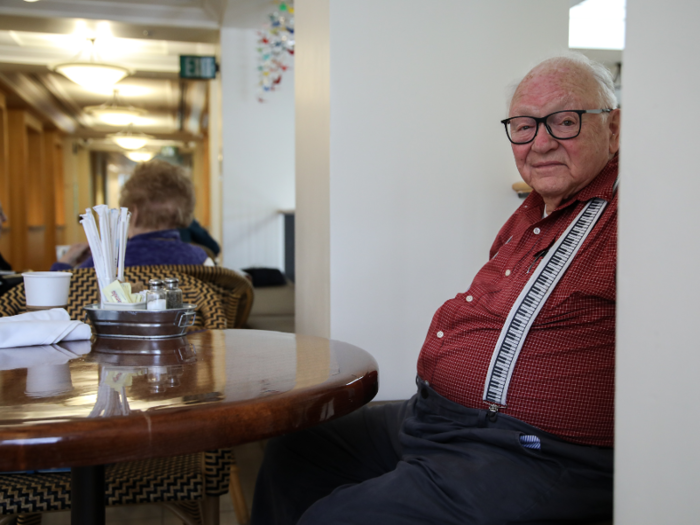
Sperry moved into Rhoda Goldman with his wife, Rita, six years ago. They had previously lived in Tiburon, just north of San Francisco, but their home there "was just too big," he said. So they decided to sell.
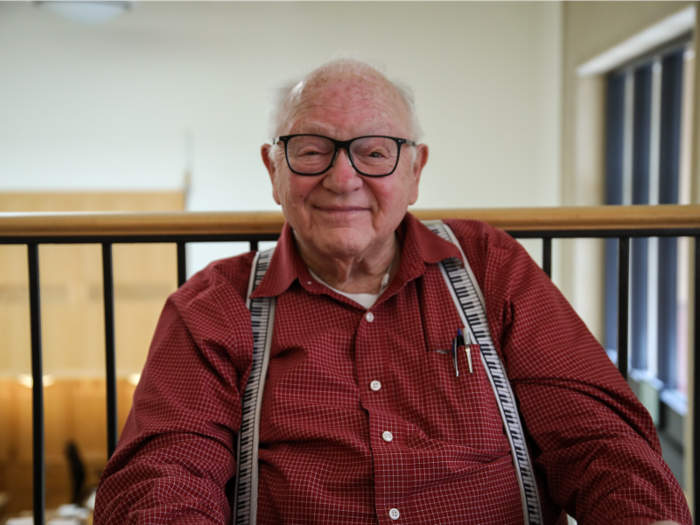
Len and Rita Sperry were married for 63 years before she died last year. "When I proposed to her, she told me that 16 guys had already proposed to her," Sperry said. "I was lucky 17, and she said 'yes' to me."
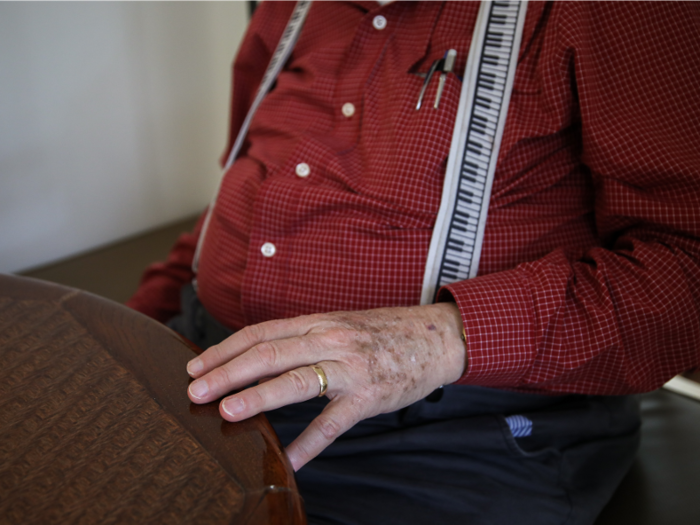
This was his first experience living in a retirement home. "First and last," he said. He keeps himself moving with all of the activities offered at the assisted living community. "You can be busy all the time if you want to be," he said.
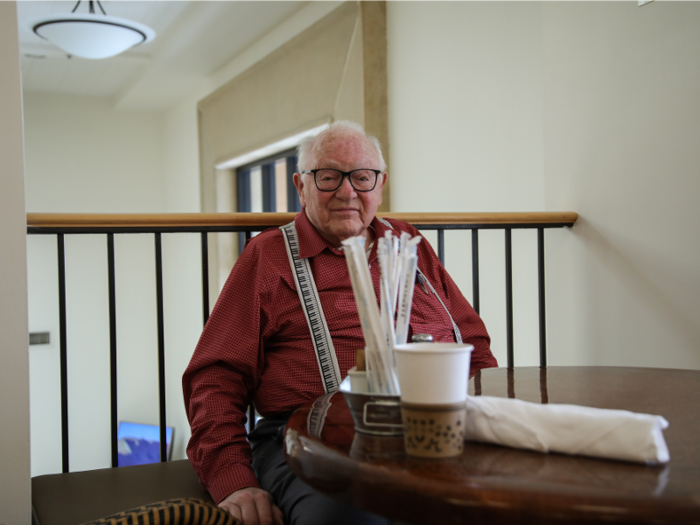
Sperry practiced law for 20 years with the state's Attorney General's office before retiring at the age of 50 to take up playing the timpani, or kettledrum, in orchestral groups. He still has his drums.
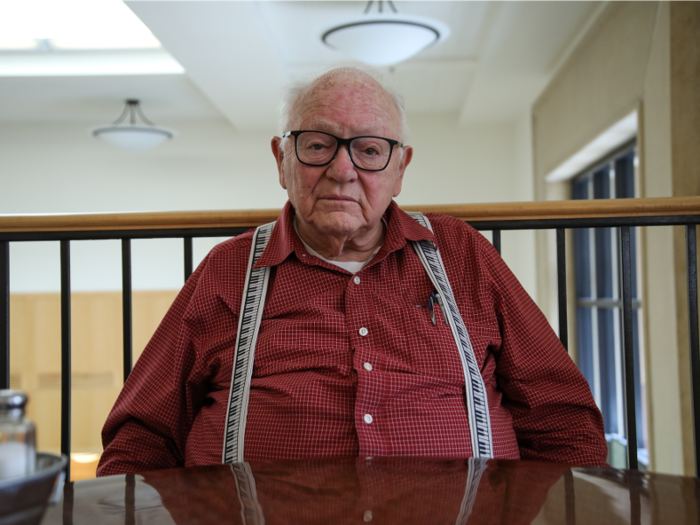
He was sporting some snazzy piano key-patterned suspenders that, he said, he found on Amazon. "I wrote in 'music suspenders,' and lots of different suggestions came up." He said he does most of his shopping online now.
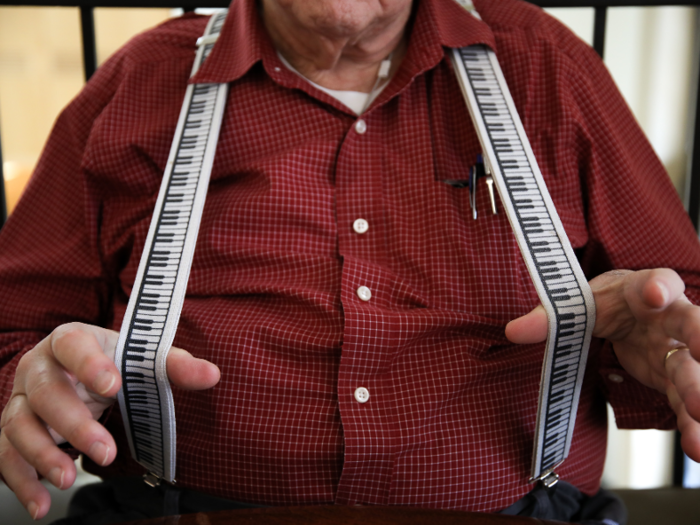
He's still able to drive himself to the grocery store, but he said he's cut down a lot and opts for Lyft, the ride-hailing service, instead. "It's very convenient, I find," Sperry said.
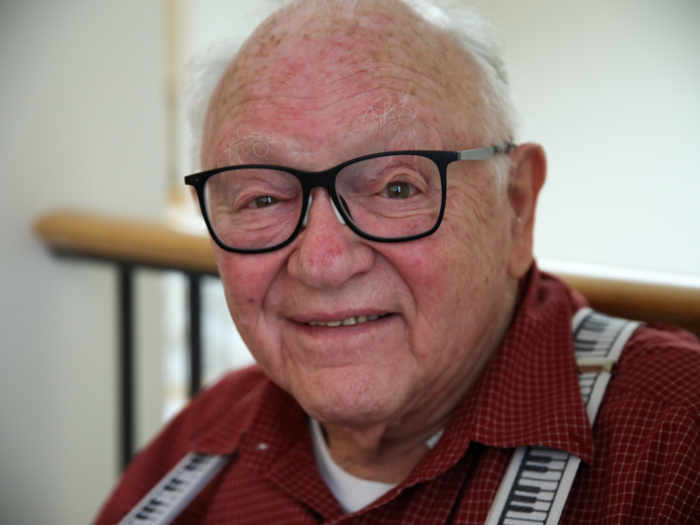
The Adlers have also altered how they navigate the city, sometimes taking the bus to get to a Chinese restaurant they enjoy. But their three mealtimes a day at the retirement home allow them, and other residents, regular socialization.
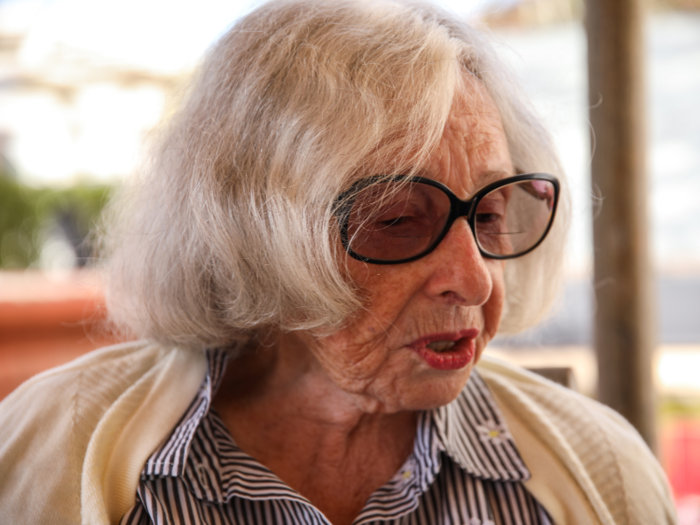
"It's a way of filling the days," Evelyn Adler said. "Our lives are scheduled around three meals and almost always at the same time. That's a significant change in our lives, because ordinarily when you work, it's around your work schedule."
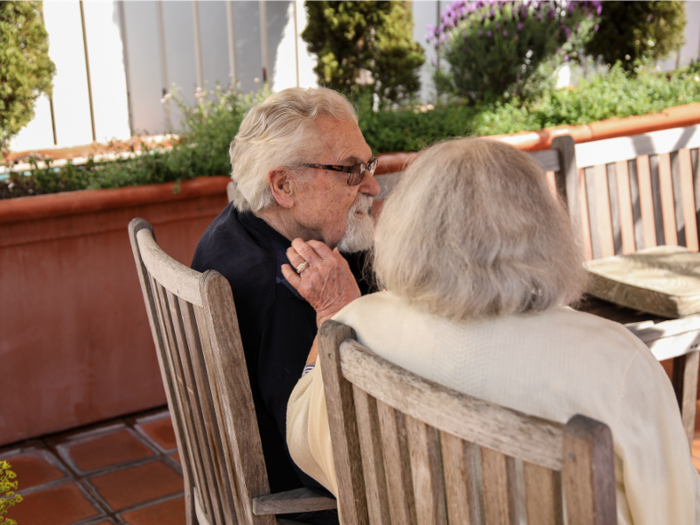
The Adlers are also one of less than 10 couples in the community. The pair have been married for 59 years. "He's always taking care of me," Evelyn Adler said. "Anything I need, I get."
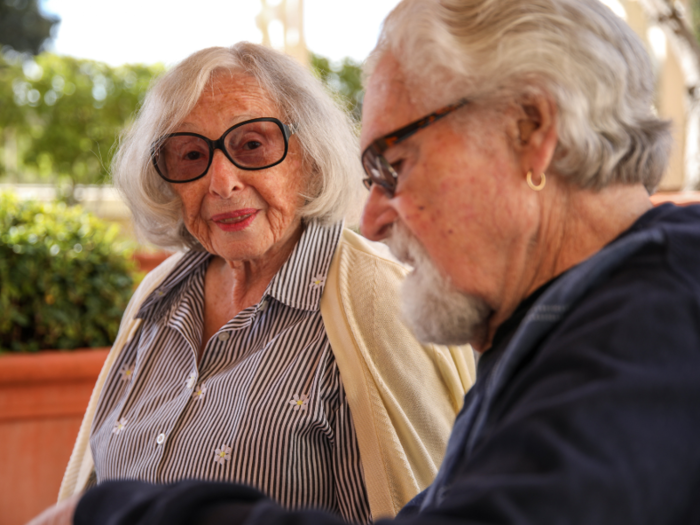
Volunteerism played a big role in both of their lives before retirement. Barry Adler still works with the Jewish Family Services next door, making daily phone calls to recluses who have shut themselves off from society. "They have a voice, and then that takes care of their day," he said.
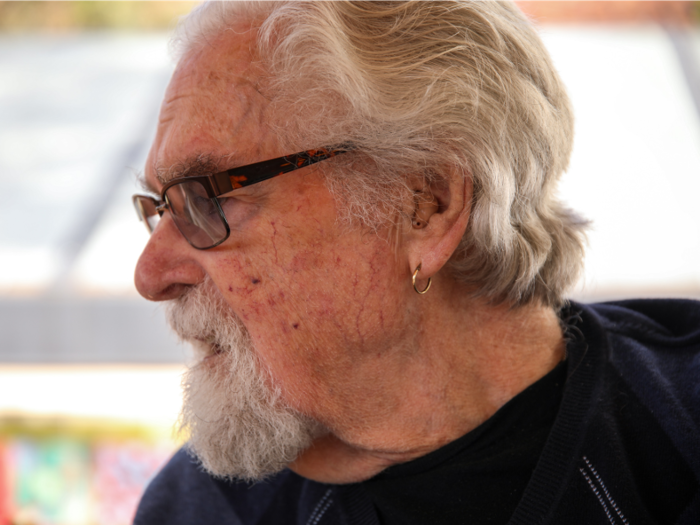
They were carrying a biography of the writer J.D. Salinger when we met them. Evelyn Adler said she wanted to suggest "The Catcher In the Rye" to the members of the book club she's active with. She's never read the book, and she'd like to.
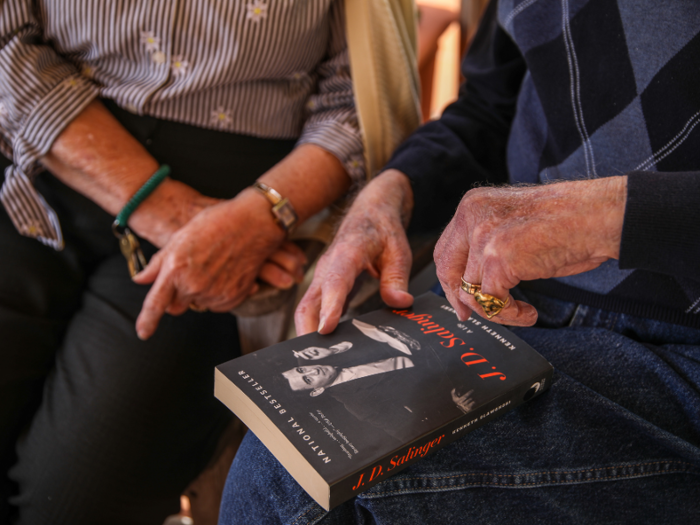
Giving up the life, and home, that someone is familiar with can be a challenge for a senior and their family, Candiece Milford, the marketing director for Rhoda Goldman Plaza, told Business Insider.

"It takes a while," Milford said. "We're asking someone to change their whole way of life."

But retirement communities like Rhoda Goldman are designed to cater to people as they age and to make that transition a seamless one, she said.

Furnishing and customizing their own units, at their expense, can also help bring familiarity to a resident's new home and way of life.

That was a big draw for 79-year-old Mark Garrett, a retired interior designer who moved in just five and a half months ago.
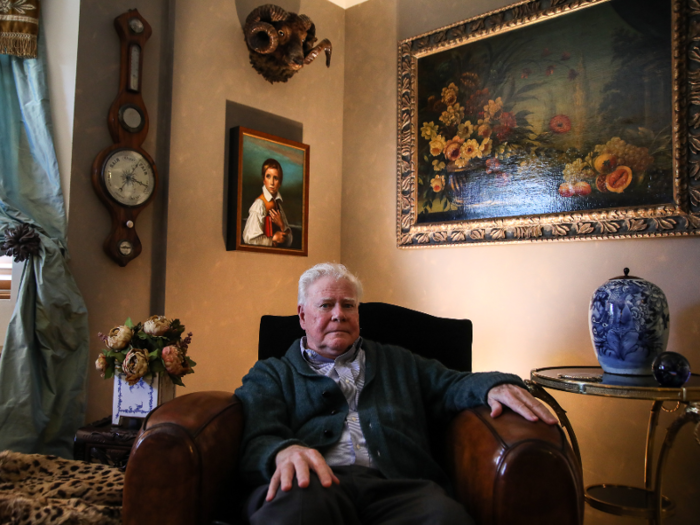
In his more than 50-year career, Garrett specialized in 18th century French and English antiques and furnishings. His work has taken him to India, Amsterdam, Russia, and, what may be his personal favorite, South Africa.
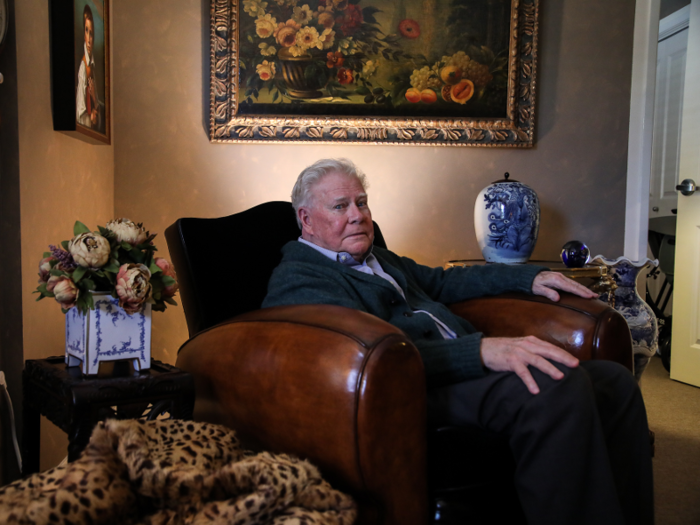
His apartment is decked out in objects from his travels — there are Venetian plaques from Assisi, a Napoleonic clock on a French colonial dresser in his bedroom, Cloisonné brass-mounted horses, and French and Italian armchairs.

You forget what millennium it is when you step inside his unit.

The only reminder of the modern world is a 22-inch flat screen TV, strategically placed underneath an antique table so as not to distract from the rest of the room, that he bought off Amazon for $180. He said he likes to watch "Law & Order."
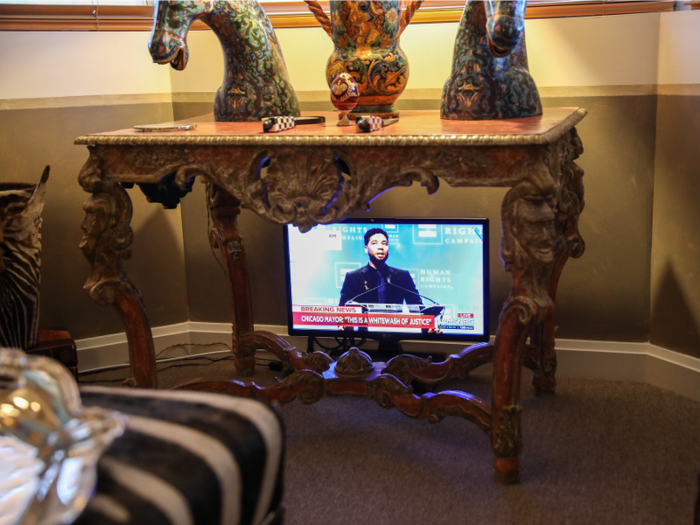
One of his favorite items in the unit is an 18th-century Italian painting commemorating a fallen general. One of the cherubs holds an hourglass with two wings attached — one white and one black, representing life and death.

"We all come here to die. Hopefully sooner rather than later," he said with a laugh.
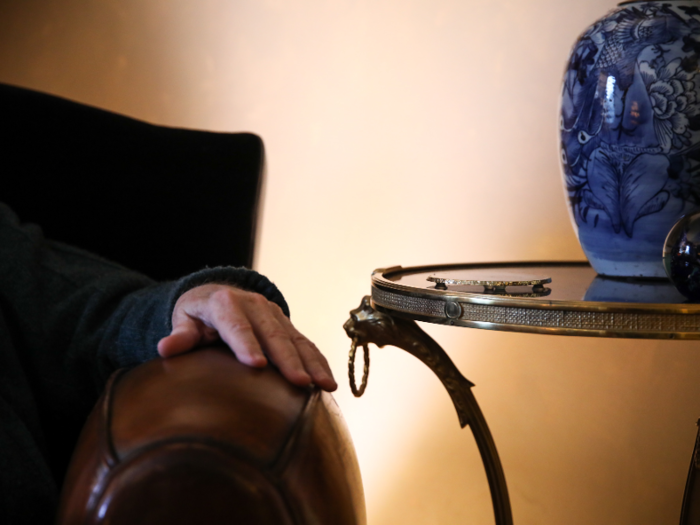
Garrett said if he had not been able to bring the items he's collected over his lifetime into the retirement home, he would have struggled. "It would have been hell for me," he said. "I have to have my own space."
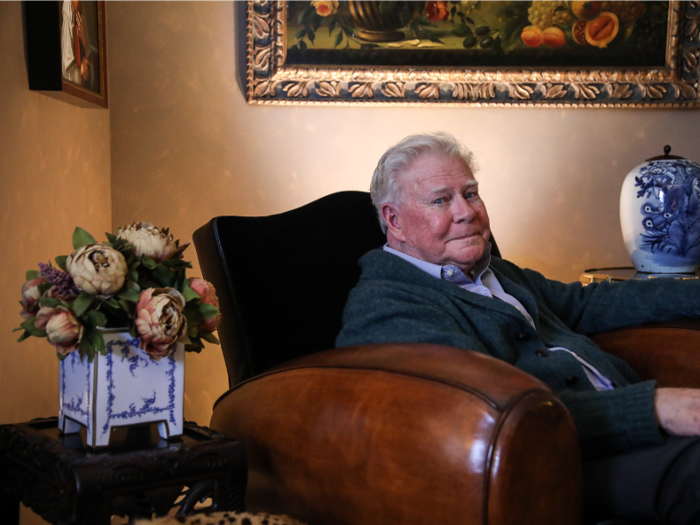
He's originally from Nashville and spoke with a Southern twang, but he's lived in San Francisco for 20 years. He retired when he could no longer walk. "My spine is eaten up with arthritis, and it put me out of business," Garrett said.
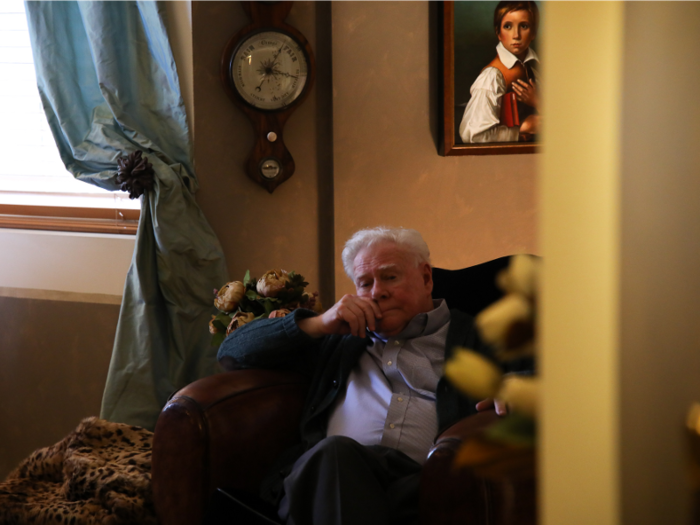
He has long-time friends in San Francisco that come over often for a glass of Scotch. He also has a son in southern California, whom he describes as "the joy" of his life. He texts him every day.

For the families of many seniors, seeing their loved ones move into an assisted living home can also be an emotional challenge.
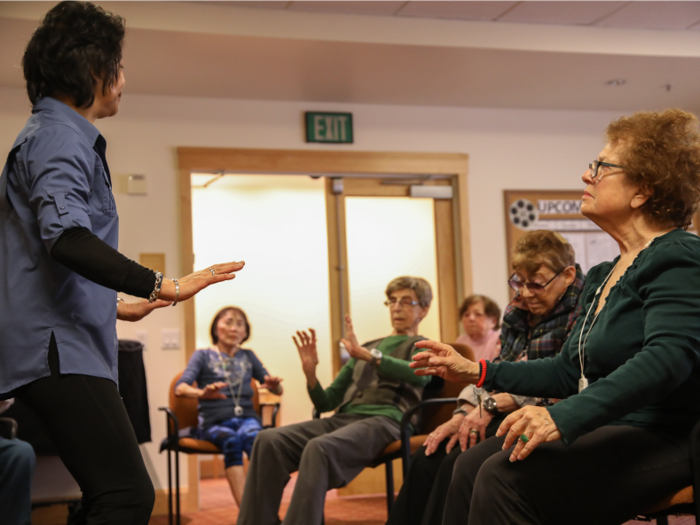
Sifting through and settling on the right option can take time, and no matter what a family decides, there will likely be some hefty bills involved.
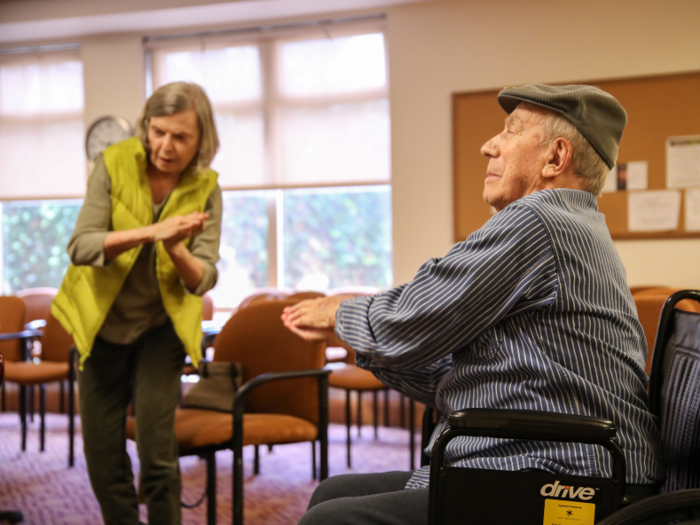
Entering a retirement community is not cheap. To become a resident at Rhoda Goldman, there's a one-time $4,950 fee plus another $6,394 to $9,519 a month, depending on if you want a studio, one-bedroom, or two-bedroom apartment.
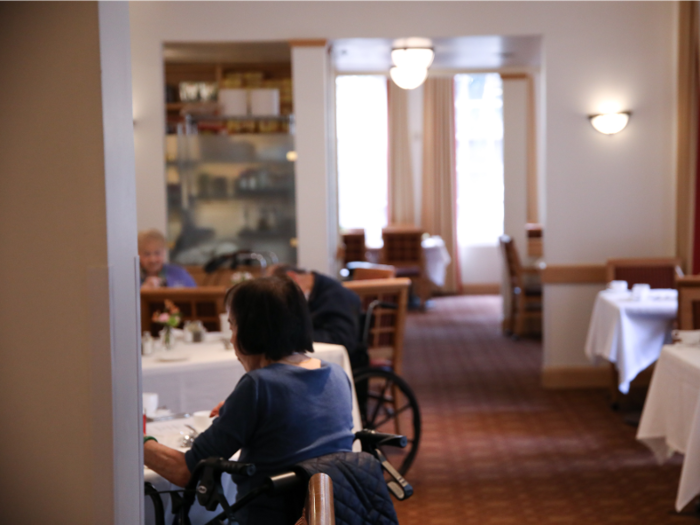
Those prices are higher than the average monthly cost of $4,000 for a private unit in the state of California, but Rhoda Goldman is a bit of an outlier in that its patient-to-personnel ratio is smaller than most.

Source: Senior Living
There are 143 full-time staff members for the community's 148 residents.
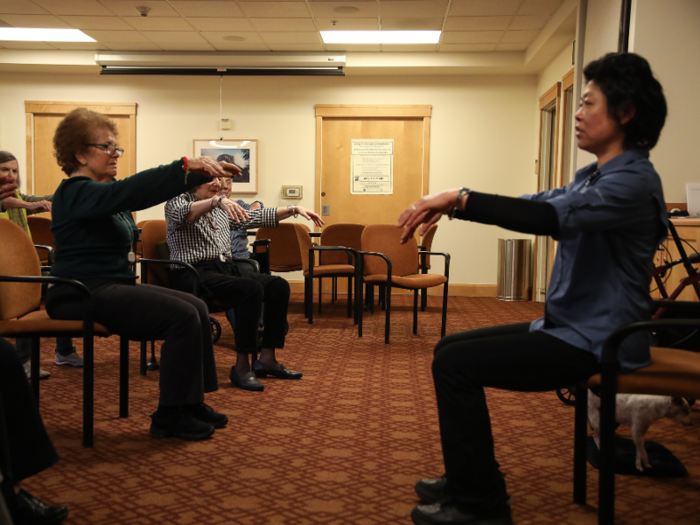
But the convenience and peace of mind for everyone involved can be priceless.
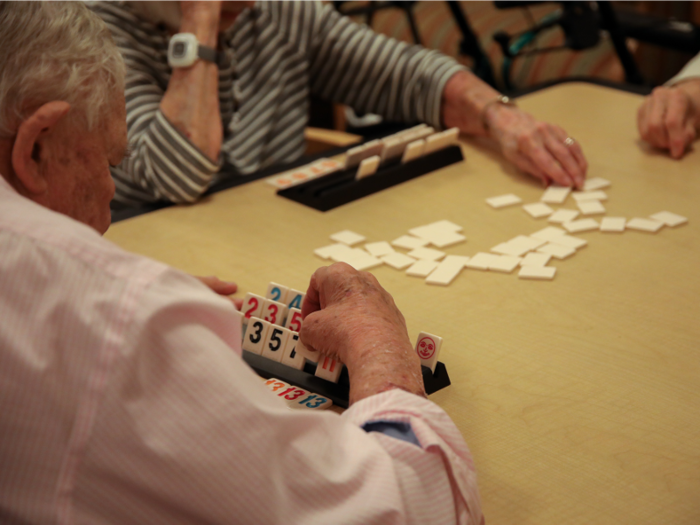
Source: Assisted Living Today
When 89-year-old Marcella Nardi fell and fractured her femur over four years ago, her daughters Suzanne and Roxanne gave her two options: move out of her spacious San Francisco home and into an assisted living community or opt for round-the-clock caregiving. She went with the former.
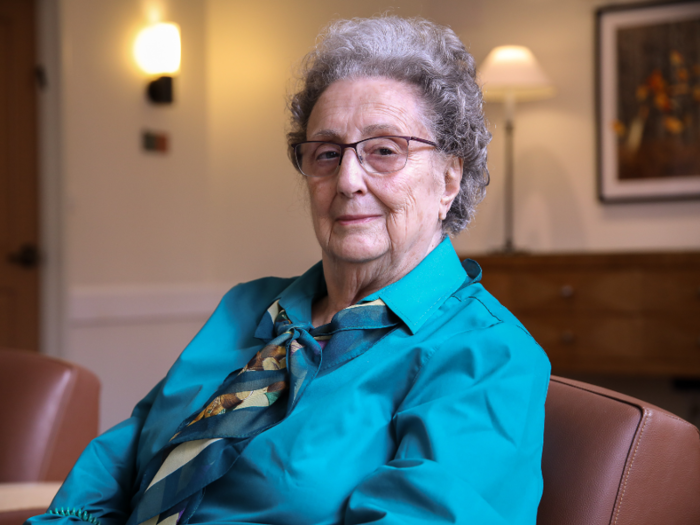
But she said the first month she was there was difficult. She had been accustomed to her old way of life and missed the normality of it. "It took me a while, and then one day I had a talk with myself," she said. "I said, 'Lady, you've gotta adapt here.'"
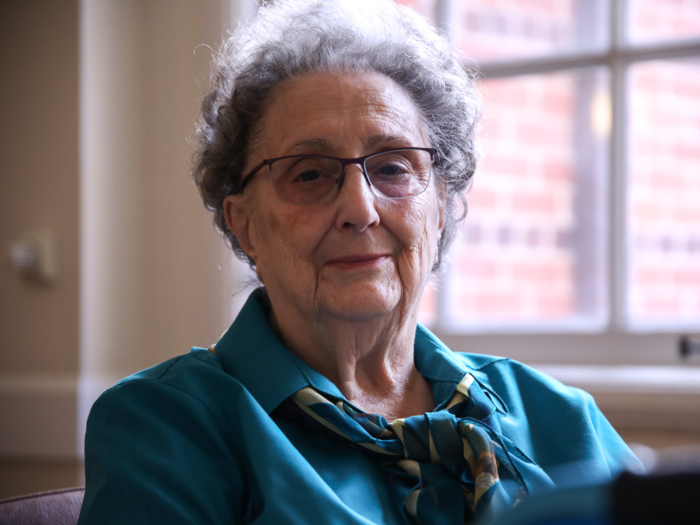
But now she said she's more than comfortable and has no complaints. "I have a lovely apartment, three square meals a day, a roof over my head, all the help that I need — what more could I ask for?" she said.
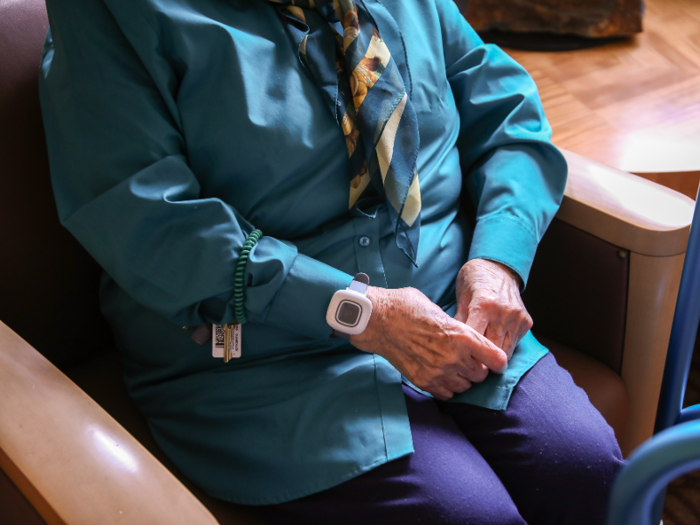
Her daughters used to come on the weekends to visit her, but she told them to stop. "This was my choice," she said. "Many years I took out insurance to live in a place like this, so why should I sacrifice my children's weekends? They work — I can fool around."
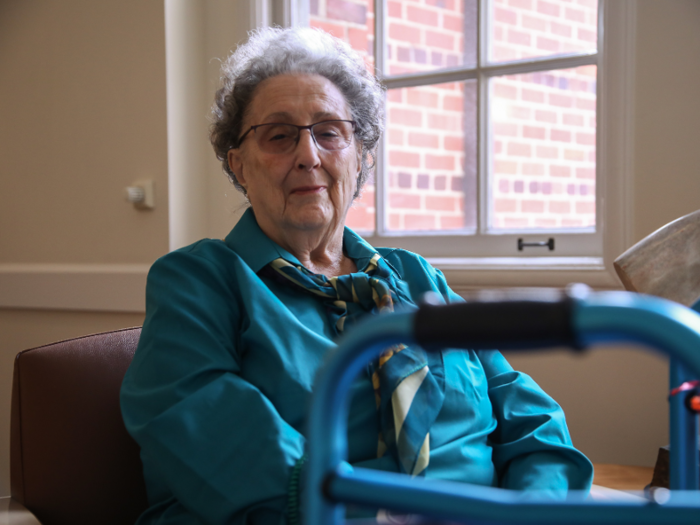
Now they give her phone calls to check in or come for family dinners in the Rhoda Goldman dining hall. Candy wrapped in boxes and colorful ribbons are included in each of the dinners. Her grandkids have taken to giving her the ribbons each visit to tie onto her walker.

During the day, Nardi knits, crochets, takes walks around her floor for exercise, and listens to her 50-disc opera collection in her apartment. Her favorite opera, she said, is "La Bohème."

Her family won't permit her to go out alone, a request that she honors. So she'll periodically ask one of her family members to take her shopping for a couple of hours during the weekend.
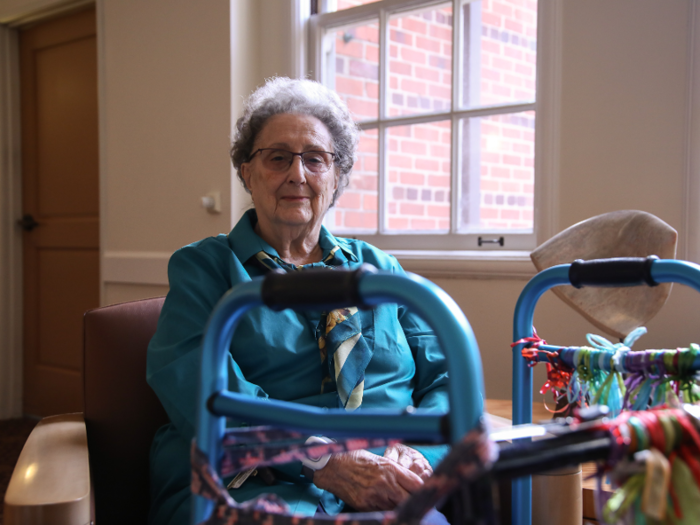
How to venture out of the retirement community and into the city was one of the main topics that residents at Rhoda Goldman brought up when we visited.
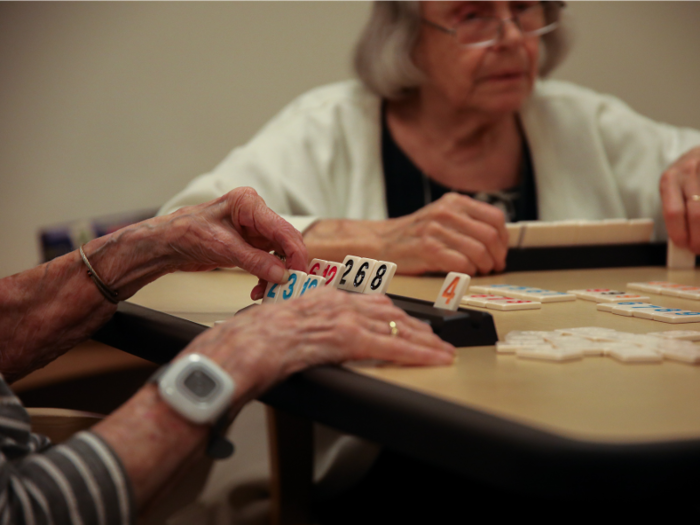
The solution, most of the time, was asking family members to take them where they need to go.
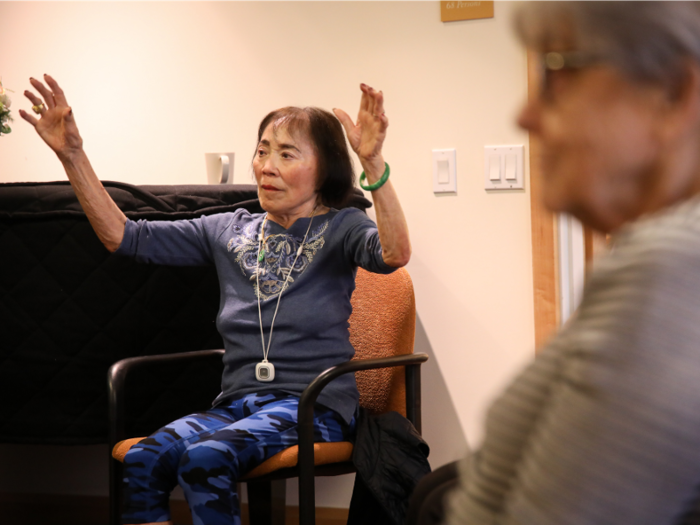
But that doesn't necessarily equate to residents feeling a loss of independence.
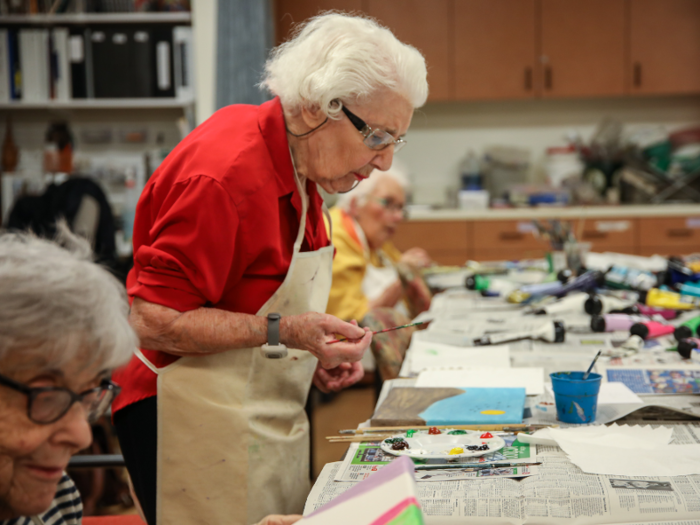
Having ample opportunities for activity and stimulation can help ensure that residents feel in control of how they spend their days.
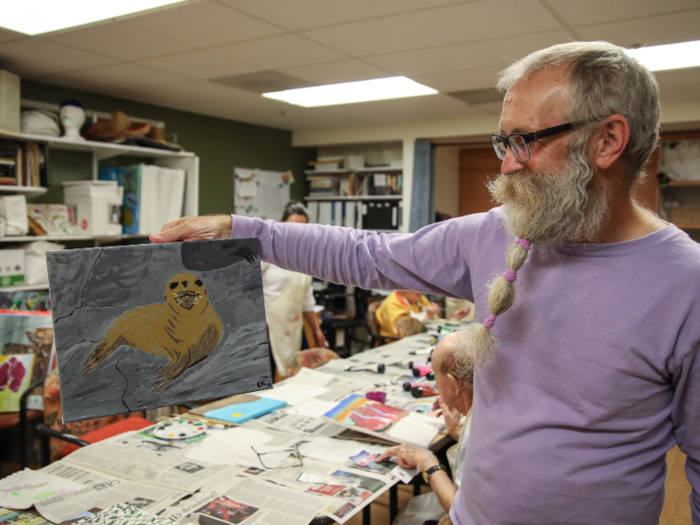
Source: Assisted Living Today
Though sometimes it's not just a question of how those in their later years will spend their free time, but how to ensure they feel a sense of purpose into their late age.
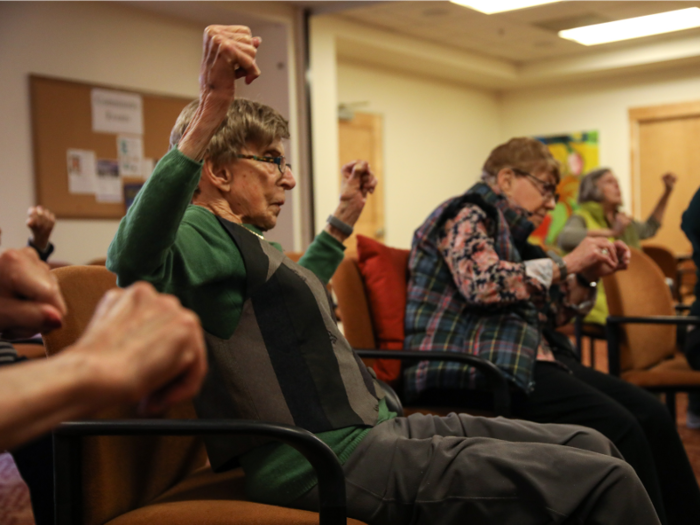
Source: The New York Times
Gloria Lyons, for example, is 89 years old, a recently-published author, and an advocate for Holocaust awareness.
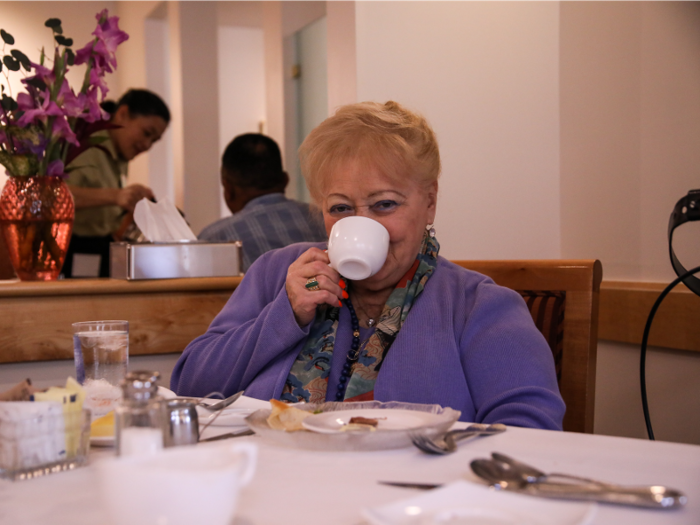
Lyons is one of eight Holocaust survivors that currently live at Rhoda Goldman. She was born in Nagy Bereg, Czechoslovakia, and at age 14 was torn from her home along with her family before enduring years of forced labor at seven concentration camps under Nazi German control.
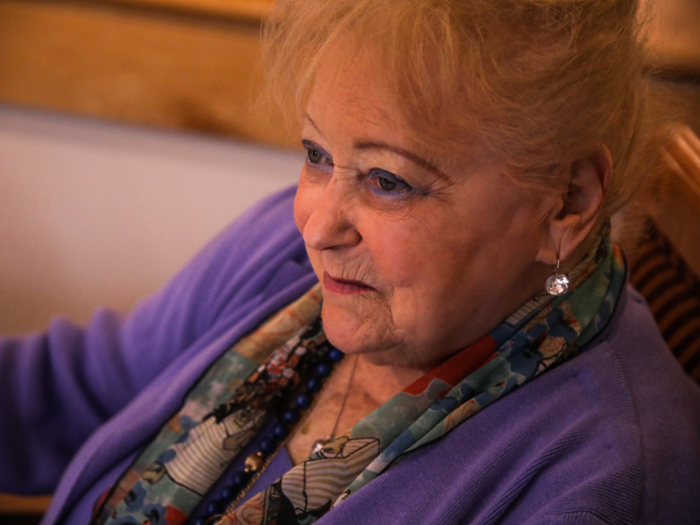
She was rescued by the Swedish Red Cross before eventually moving to San Francisco in 1949. She said it took her a while to open up about her experience. "I really had to overcome that, no matter what the price is," she said. "I couldn't live with it."
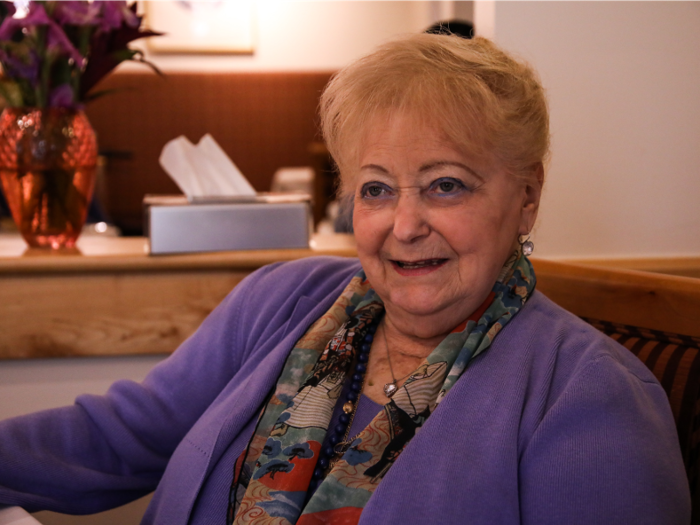
But she eventually began to talk about it, and in 2018 she published her memoir, "Mommy, What's that number on your arm?" detailing her experience as a Holocaust survivor. She finished and revised the book while living in the retirement home after her husband of 64 years died.
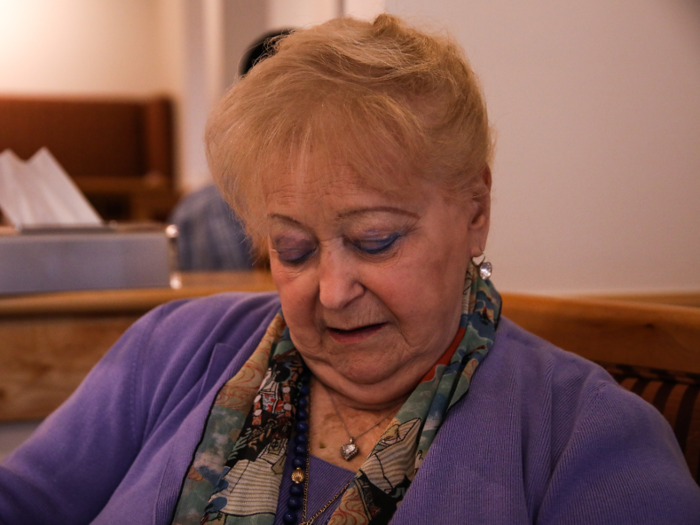
She's become an advocate for Holocaust awareness, speaking at lectures and schools. Even before she moved to Rhoda Goldman, she had spoken in over 1,000 events about her experience.
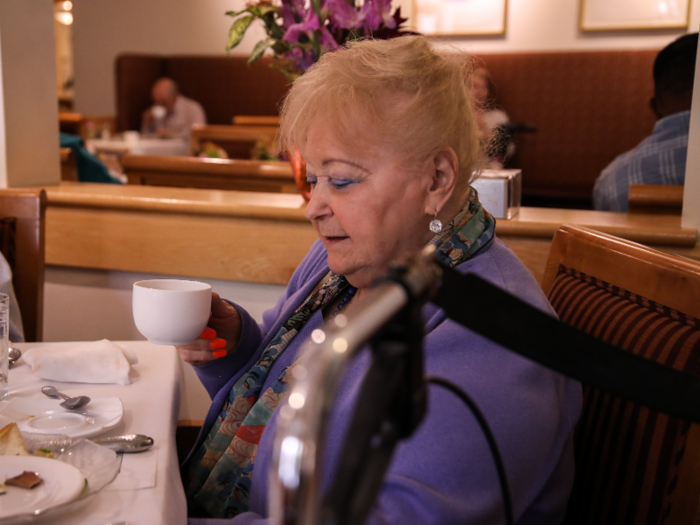
She said she doesn't leave the home too often anymore for book tours and events. But she still stays active, most notably to visit her favorite nail salon on nearby Fillmore Street for touch-ups on her infamous bright orange nails.
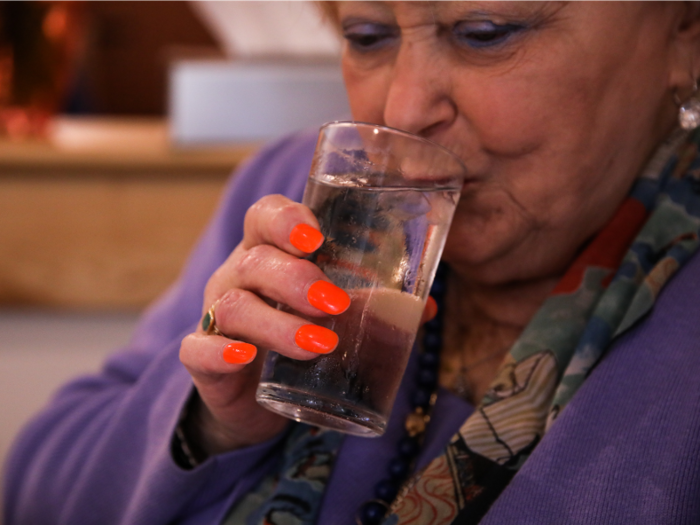
She also has two sons, nine grandchildren, and 13 great-grandchildren. "It's exciting for me, because I was really hoping to leave a legacy for my family," Lyons said.
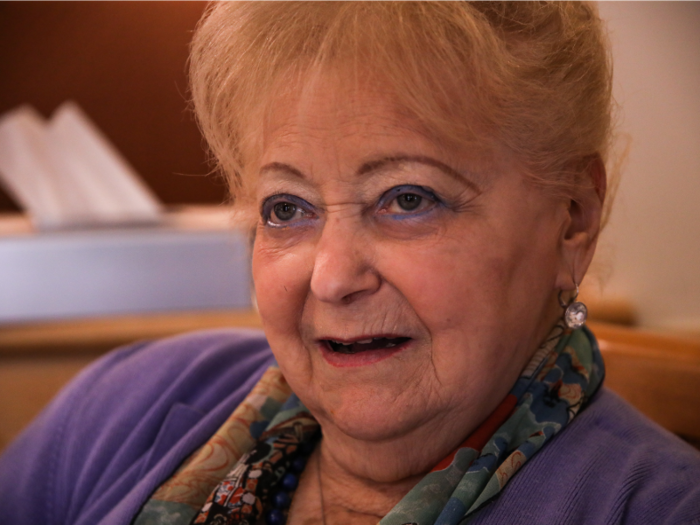
Lyons, at 89 years old, would be categorized as a member of the Silent Generation, named so for the ideology of that era that children should be seen and not heard. Members of the Silent Generation are people born between 1925 and about 1945.
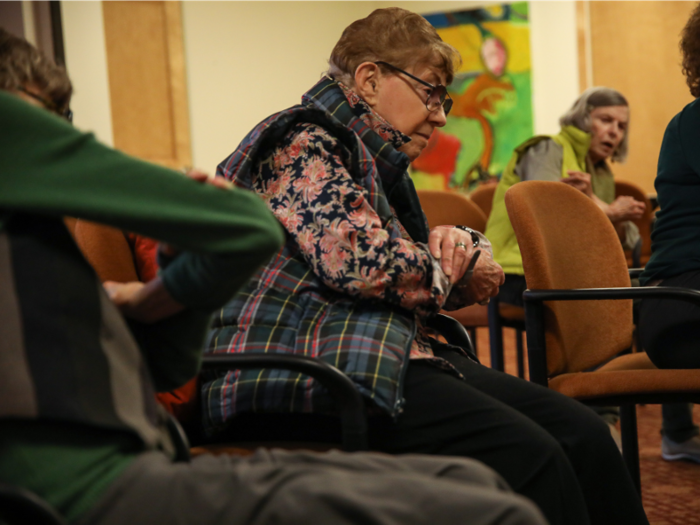
Source: Time
But as Baby Boomers are now reaching the age of retirement and deciding how they'll spend their later years, the landscape of senior living is changing.
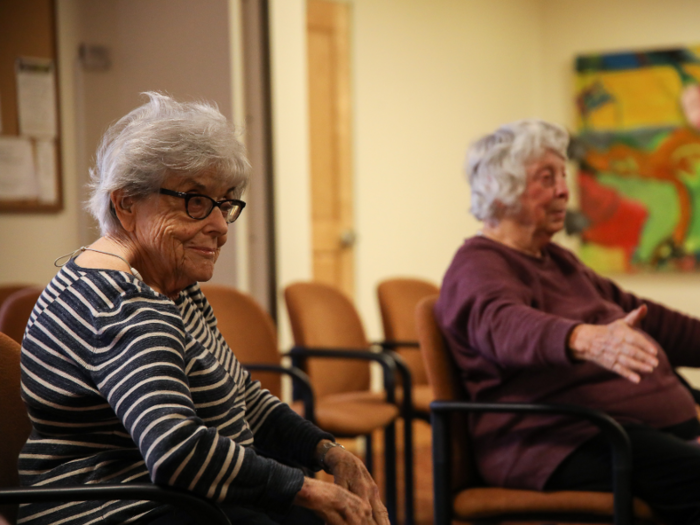
Source: "Senior Living: The Next Generation" by the Senior Living Innovation Forum
Senior living centers are having to anticipate the needs of a new generation of seniors. For example, experts believe Baby Boomer seniors will want more rigorous exercise choices, like Crossfit and Spin classes.
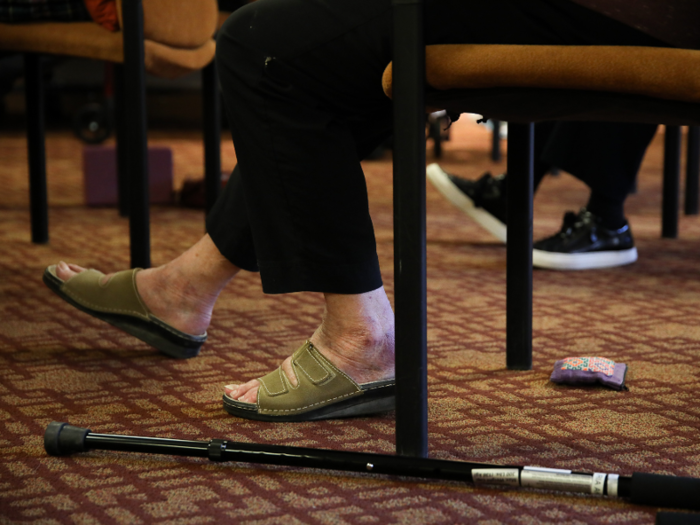
Source: "Senior Living: The Next Generation" by the Senior Living Innovation Forum
They'll also want to be closer to city centers, so residences of senior living centers will take the form of high-rise properties in denser areas, experts say.
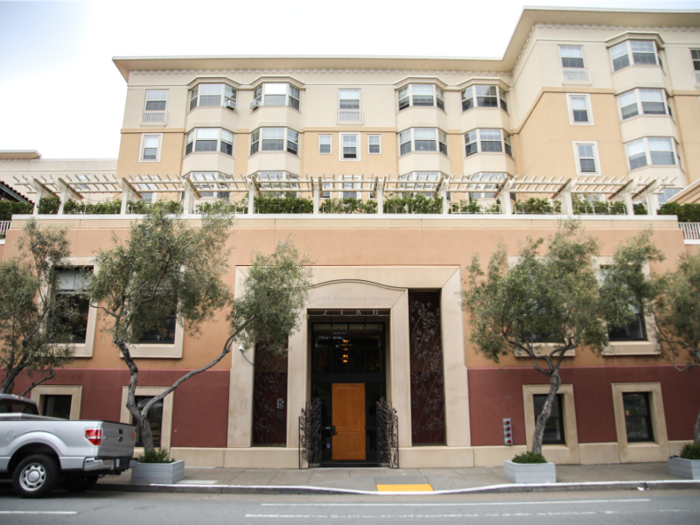
Source: "Senior Living: The Next Generation" by the Senior Living Innovation Forum
Milford said future senior centers will also better accommodate married residents since older couples moving into retirement communities is becoming more and more common than it used to be.
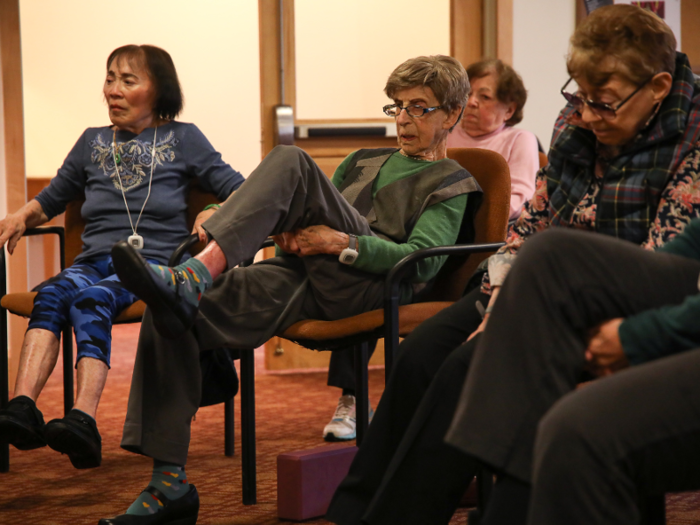
We may see many more couples like the Adlers move into senior living centers together.
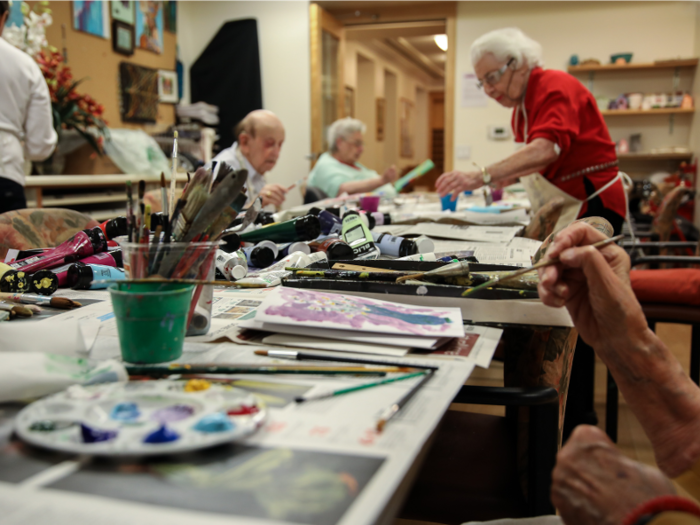
As for the Adlers, they said they're happy with their decision. "There was a long time where I said there was no way I was moving from my apartment; I'm not leaving, I'm not moving," Barry Adler said. "But as you can tell, we're here."
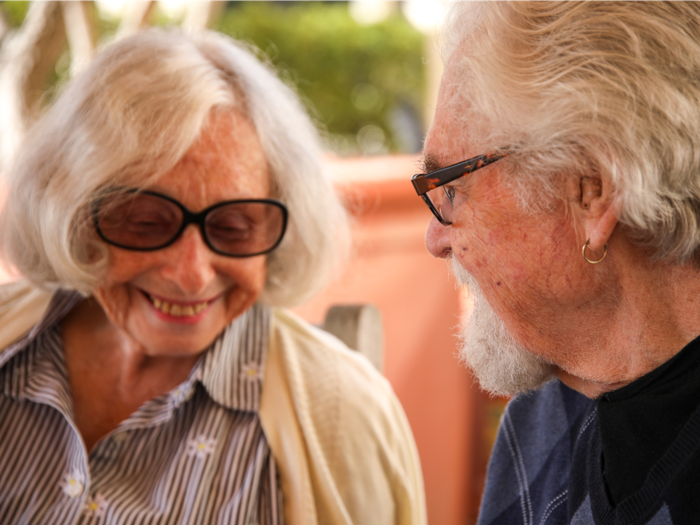
Popular Right Now
Popular Keywords
Advertisement